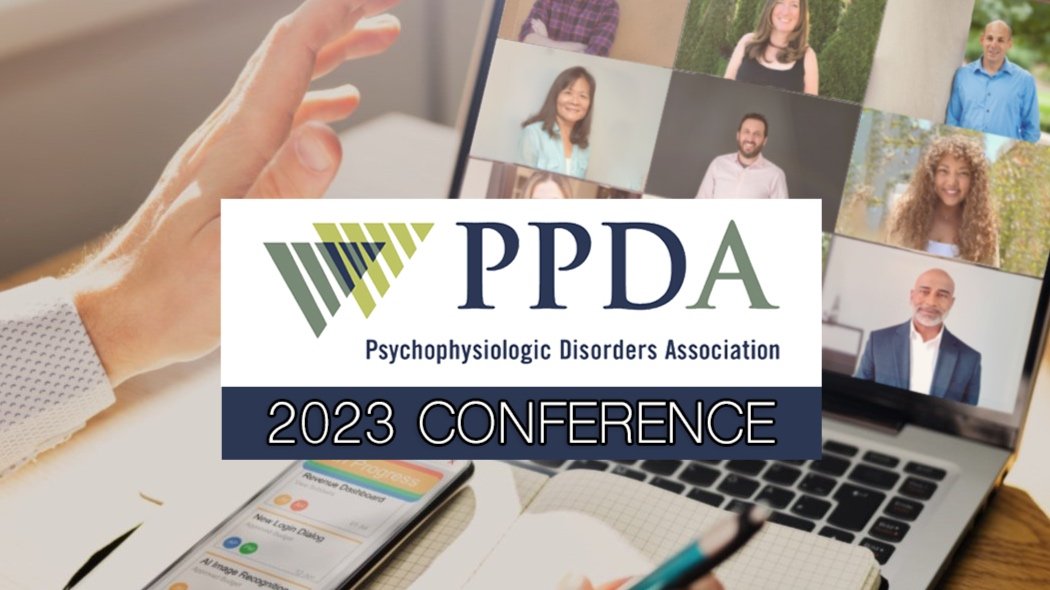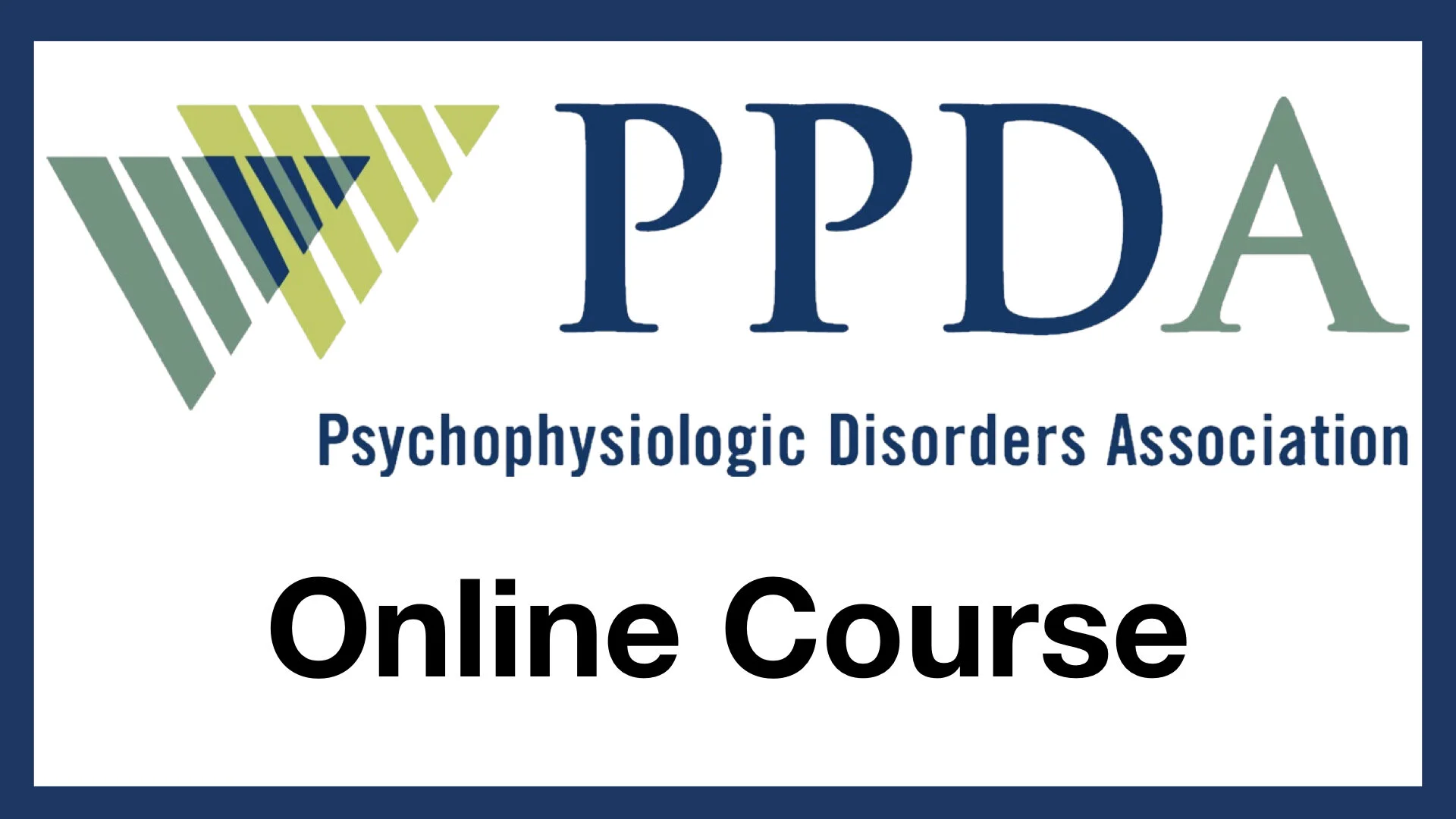
Did you know that one in six adults and 30-40% of primary care patients suffer from medically unexplained symptoms, chronic functional syndromes or psychosocial factors linked to chronic pain? Collectively these are known as Psychophysiologic Disorders (PPD) and they cause needless suffering, tremendous dissatisfaction with the care experience, unnecessary and high costs, and burnout among clinicians.
Fortunately, all that can be changed. Recent scientific advances have documented that PPD patients can be diagnosed and treated as successfully as those with organ disease or structural abnormality. The problem has been that few healthcare professionals have had formal training in PPD.
That is where the Psychophysiologic Disorders Association can help.
How We Can Help Your Organization
We offer numerous resources to train medical and mental health professionals to collaborate in ways that not only improve outcomes but also, as one Family Physician phrased it, “put the joy back into my practice.” Among these are:
The 2023 PPDA Conference
Last year, we had new topics and an impressive lineup of 29 speakers. Our conference was held virtually, and the good news is that on-demand access with enduring credit is still available until October 31, 2024. Register today and enjoy the sessions at your own pace. We're proud to offer 12 Enduring CE/CME hours for physicians, nurses, psychologists, and social workers.
2021 Conference On demand
We are delighted to announce that we have recently hosted the largest mind-body conference to date. Even if you were unable to attend the event, you can still register to access the conference and watch the recording at your convenience. Twenty-two experts share how to eliminate chronic pain, migraine, fibromyalgia, irritable bowel syndrome, chronic fatigue, pelvic pain, eczema, and other chronic or medically unexplained symptoms through an evidence-based, biopsychosocial approach.
Online Course # 1 : Psychophysiologic Diagnosis and Treatment
A 6-hour online course on trauma-informed diagnosis and treatment of PPD. Based on experience with over 7000 patients and taught in two graduate schools to hundreds of students since 2013. CE credits are not available for this course.
Online Course # 2: Challenging Psychophysiologic Cases
This course builds on the Psychophysiologic Diagnosis and Treatment course and is jargon-free so that everyone can benefit. The course provides deeper insights into all patients with PPD and into advanced techniques of Emotional Awareness and Expression Therapy by focusing on those who are particularly difficult to diagnose or treat.
textbooks
The textbook Psychophysiologic Disorders, written by 16 experts from five countries averaging 20 years’ experience in over a dozen specialties.
A Diagnostic Guide for Psychophysiologic Disorders
Did you know that one in six adults and 40% of primary care patients suffer from medically unexplained symptoms, chronic functional syndromes, or psychosocial factors responsible for chronic pain? Collectively these are called Psychophysiologic Disorders or PPD. As recent research has confirmed, a trauma-informed approach to diagnosis and treatment can transform these patients from among the most frustrating to the most rewarding and give them a far better chance for a full recovery. This process was described in detail in the previous volume from the PPD Association titled Psychophysiologic Disorders (KDP Publishing, 2019).
A key barrier to implementing this approach is that most medical clinicians lack formal training in assessing for PPD and most mental health professionals lack knowledge of medical diagnoses. This book addresses that blind spot with a table of hundreds of medical diagnoses that are common in PPD patients. The table explains each diagnosis and describes the contribution from PPD without jargon or technical terms. It is based on published evidence and the authors’ experience diagnosing and treating PPD in thousands of patients.
Also included is an introduction to the diagnostic process for PPD that includes the authors’ most recent recommendations. There is also a detailed self-assessment questionnaire for patients that is designed to provide insight into how well their condition fits the biopsychosocial context commonly associated with PPD. As in the companion book Psychophysiologic Disorders, the concepts are practical and can readily be implemented by any healthcare professional.
Learning this approach is more than just clinically effective. As one family physician who learned these concepts said: “It put the joy back into my practice.”
Custom Training
On-site & virtual training by PPD Association experts who can jump-start accurate diagnosis and treatment of this population in a group of medical & mental health clinicians with a day of lectures and demonstrations.
Our trauma-informed, evidence-based diagnosis and treatment can relieve (not just manage) physical symptoms by assessing for and treating current life stresses, past traumas, suppressed emotions and the prolonged impact of adverse childhood experiences (ACEs). This approach gives patients a far better chance for a full recovery, saves unnecessary expenses, and transforms these patients from among the most frustrating to the most rewarding.
Organizations We’ve Worked With
UnitedHealth Group
The world’s largest healthcare company asked PPDA Co-Founder Howard Schubiner, MD to consult on model pain clinics with a team of physicians, physician’s assistants, nurse practitioners, physical therapists and mental health providers, all trained in mindbody medicine. Christie Uipi, LCSW (Co-Investigator of the PPDA-sponsored University of Colorado Boulder clinical trial) is leading the behavioral health team. Data is being collected on treatment outcomes.
Community Care Physicians, P.c.
PPDA President David Clarke, MD provided consultation for CCP’s Director of Behavioral Health Cindi Stone, DBH on how to diagnose and treat patients with chronic pain, chronic functional syndromes and medically unexplained symptoms (PPD). With this insight into the PPDA’s treatment approach, Dr. Stone was able to relay this method to fellow clinicians at her Latham, NY office and the results were astounding! The quadruple aim was met, with one Family Physician sharing this approach “put the joy back into my practice!”
Capital district Physician’s health plan, inc
PPDA President David Clarke, MD provided an in-person presentation to the CDPHP network of providers in Albany, NY alongside the Community Care Physicians team of clinicians led by Cindi Stone, DBH. Together, the presentation highlighted the quadruple aim benefits of properly diagnosing and treating patients using the PPDA’s mindbody approach.









